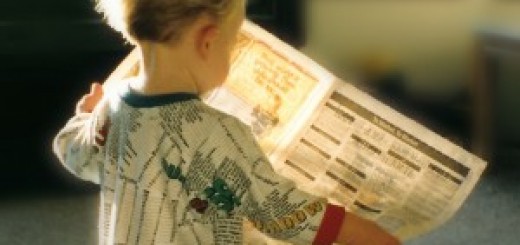A glass gem instead of a diamond

16 bKislev 5767
“After the prince lost the first two diamonds that the king gave him, the king gave him a beautifully cut glass gem for the prince’s ring.”
That is the parable used by Rav Zvi Zeltzer, principal of the Beer Sheva Beit Yaakov school, to explain in the 1970s one way haredim relate to the state of Israel. Many of the then-religious-Zionist-American olim who immigrated to Beer Sheva 3 decades ago sent their daughters to the haredi Beit Yaakov because at that time it was the best alternative. Some parents worried about what would happen on Yom Atzmaut (nothing happened, neither for nor against), what would transpire when their girls would go to the Bnai Akiva clubhouse which happened to be on the street where the principal lived (nothing happened).
In those days I had been blissfully unaware of the hashkafic divisions in philosophic outlook among the Orthodox, one advantage of coming from a non-observant home. After several decades I find these differences fascinating and important, reflecting a healthy passionate intensity.
I discussed some of these issues in a Jerusalem Post interview with Prof.Yakov Rabkin, author of the recently published The Threat from Within: A Century of Jewish Opposition to Zionism.
My oped interview was published Wednesday 15 bKislev (Dec.6) in the Jerusalem Post, and so far there are 42 talkbacks. I spent part of “Kaf-Tet beNovember” rereading Rabkin’s book. What is special about the date Nov.29?………..
….On Kaf-Tet (29) in November 1947 the UN took a major step in creating the State of Israel and voted on the partition plan.
Full disclosure: Yakov Rabkin is a friend of our family. We met him when he was on Sabbatical in Jerusalem where his children were dispersed among the different Orthodox options – from haredi heder to Beit Yakov to national religious high school (“hanoch hanaar al pi darko“, he explained. The school should fit the temperament of each child.) I mention this to indicate that Rabkin is a religious Jew who cares deeply about Israel and is familiar with many different Orthodox hashkafot. He is also interviewed by Haaretz this week in Rosner’s domain.
Where I think Yakov errs in his book is in the choice of title – A Threat from Within. Why are the non-Zionists, or even the anti-Zionists a threat?
I also think he makes a mistake in his emphasis on the extreme anti-Zionist groups. I think that is an injustice to what I termed in my article the quietistic, wait-and-see attitude of the garden variety non-Zionist (ultra-Orthodox Jews who are agnostic Zionists).
I find myself often having to explain the non-Zionist position. Rabkin has one sentence in the book that is a succinct summary of that weltanschauung
:”Pious Jews were quick to take a stand against Zionism for one simple reason: Most of them saw in it a catalyst for the deliberate rejection of Judaism.”
I would be happy if others could suggest a one paragraph or one sentence description of the spectrum of haredi attitudes towards the State that is fair, objective, and non-pejorative.




We live with high hopes of a complete transformation from exile to redemption, gradually or suddenly. But there is sharp disagreement about the timing and method for starting and completing this momentous transformation.
Some believe that, in Israel at least, we have already entered an early stage of redemption. Others (such as Chareidim in general) believe that we are everywhere in the final stage of exile.
Some believe that, in Israel at least, we have to undertake direct practical action to complete a redemptive process that has already started. Others (such as Chareidim in general) emphasize Torah study, Tefillah and Mitzvot to finally make us worthy of a Divine decree to redeem us.
Our positions on these points have wide ramifications in the way we relate to religious, social, and political issues inside and outside Israel.
Both the parable and the quote from professor Rabkin are correct.
The deliberate rejection of Judaism was the revolutionary raison d’etre of the fervently-secular socialist-nationalist Zionists of the Second Aliya, who arrived in Palestine in the early 1900’s–Ben-Gurion and Ben-Zvi.
The substitution of the cheap glass gem of Zionism for the real diamon of authentic Judaism applies to most Zionist Jews around the world, who bolster their Jewish identity by singing Hatikva and planting a tree in Israel. This group is steadliy diminishing, as the vacuous nature of this form of “Judaism” becomes more obvious to the younger generations.
Array of chareidi attitudes
The state is the work of the Satan and we must actively work towards its demise
The state is the work of the Satan and we must pray and learn Torah and hope for the best
The state IS a transgression of the three oaths and is the cause of most of our problems in the world
The creation of the state WAS a transgression of the three oaths but now has utility
The creation of the state was potentially a positive event but the secular Zionists messed it up and now it is a worse place to live than most other countries
The creation of the state was potentially a positive event but the secular Zionists messed it up and now it is just another country like any other – we must be loyal and follow the laws but have no particular emotion about it.
The state’s existence IS a positive thing but we have to have our priorities straight and continue rebuilding the Torah world (which is the main reason the state was created for in the first place) – we must give thanks to Hashem this gift.
I may have missed some but I think that this is a fair spectrum of the chareidim POVs.
My husband’s book “Beyond the Jewish State” was quoted in Professor Rabkin’s book and they spoke a few times. After seeing the book, my husband wrote to a friend: “Although I was quoted fairly and accurately, I do not subscribe to Pr. Rabkin’s views – quite the contrary. Partly this is because my views have evolved, partly because times have changed, but more fundamentally, I was an early “post-zionist” before the name was invented – not anti but post.”
I hesitate to quote my husband z”l from memory, but I do recall that he considered Rabkin’s use of sources somewhat unbalanced, so that it gave the incorrect impression that fervent orthodoxy cannot be reconciled with Zionism. He was also disturbed by the approbations from non-Jewish anti-Zionists and had the impression that the book might contribute to an attitude of “It is fine to continue hating (killing) Zionists, but some Jews are ok and should be left alone.”
Regarding the title – note that the book was originally published as “Au nom de la Torah: une histoire de l’opposition juive au sionisme” – which is more appropriate than the title chosen for the English translation.
Shira,
Here is my take. First we must understand the two fundamental issues regarding the State of Israel.
1. Question: Can their be a Jewish state run by Jews not committed to Torah?
Answer:
a.) Neturai Karta, Satmar and Chareidi – No! Such Jews will in the long run will destroy the Jewish nation.
b.) Religious Zionists pre-Gush Katif Expulsion – Yes. It is not ideal, but every Jew has Kedushah and we must work to build bridges with them, and show them the Torah way.
c.) Religious Zionists post-Gush Katif Expulsion – A non-Torah government is dangerous, untrustworthy, and treacherous.
2. Question: Is it permitted to form a Jewish State prior to the coming of Moshiach?
Answer:
a.) Neturai Karta and Satmar – No. It is forbidden by the “Three Oaths”. The state must fall in order before Moshiach can arrive.
b.) Chareidi – ???(I don’t know)
c.) Religous Zionist – It is “The first flowering of redemption” as taught by Chazal. The greatest, most overt miracle from Hashem in thousands of years.
IATM (It appears to me) that regarding the first issue, there is close to complete agreement that an Anti-Torah Government is bad. (note – I believe that this is a potential Achdus rallying point for Torah Jews. I believe that if we all band together, we can fix this problem).
Regarding the second issue, the gap between the two approaches to the State is so big that there doesn’t appear to be any possible way to reconcile the two opinions. One has to be wrong.
So, to summarize, here is how a two sentence description of the spectrum of haredi attitudes towards the State that is fair, objective, and non-pejorative would look:
“Various opinions abound whether the existence of the State of Israel is beneficial for Klal Yisrael, ranging from “undesirable but a necessary evil” to absolutely forbidden. The Charedei community recognizes the dangers, both physical and spiritual, posed by an Anti-Torah Government, and its leaders act and react accordingly.”
note – IATM the question of Zionism is different from the question of the State, and somewhat more complex. I have decided to focus on the State exclusively.